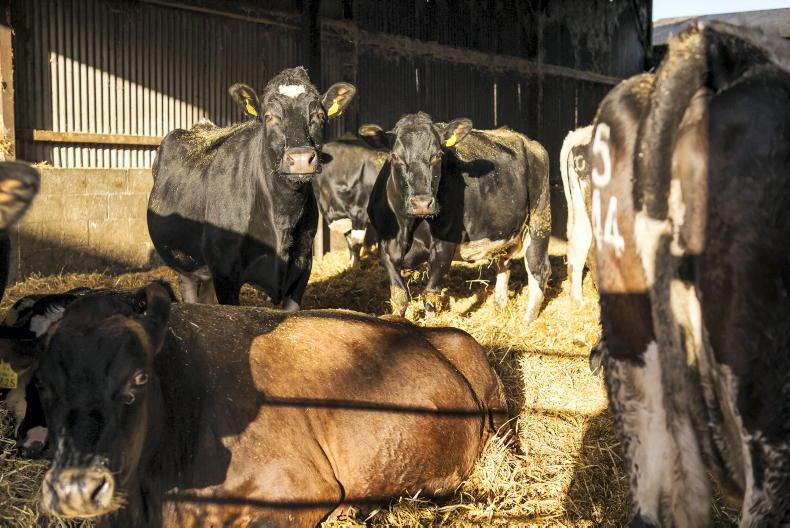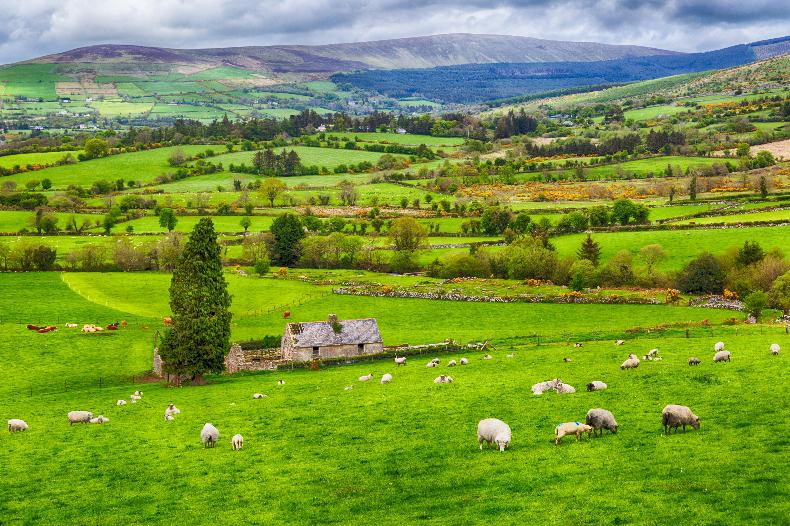Jonathan Swift said: “A wise person should have money in their head, but not in their heart.”
Money is central to all of our lives, but it doesn’t naturally follow that we will find it easy to get our heads around the details of money management. Many farmers are good money managers, but others struggle with taking care of their personal and farm finances. Farmers, by their nature, are happiest when out and about on the farm and managing finances can often get filed under bookwork, which they would rather avoid.
Time on finance is the best return on time
My experience as an agricultural consultant has shown me that farmers who spend time on their finances reap huge benefits, which can be easily seen in the smooth running of the farm business. I am convinced that the time you spend managing your finances will give you a better return than time spent on any other farm activity.
If money issues arise, a huge amount of time and effort can be spent sorting the problems out. In addition, the firefighting involved in juggling payments to banks and trade creditors can be very stressful. And paradoxically, it isn’t always the case that farmers who are good money managers spend more time managing their finances than farmers who struggle in this area. The best financial managers, in my experience, are farmers who know their costs of production and have a proper funding structure in place.
Understand what underpins your
business
To be successful in any business, you need to have a real understanding of the figures underpinning that business. This applies as much to farming as it does to any small or medium enterprise.
If you have a mix of enterprises on your farm, you need to understand what each enterprise is contributing to the bottom line. The bottom line should exclude direct payments. Ideally, you should be able to break down your costs on a per unit of output basis. This way, you are clear on how much it costs you to produce a kilo of meat, a tonne of grain or a litre of milk, etc. Once you are armed with this information, you are well placed to make good financial decisions.
Conducting an annual review
Many farmers use computer programmes such as the profit monitor to give them a detailed breakdown of their financial performance. If you are using one of these programmes, you are likely to be ahead of the posse, but if you are not, all is not lost. When you think about it, every farmer in the country already completes a profit monitor. Your annual financial accounts completed for Revenue contain a wealth of information about your farm business. This information can be used to conduct an annual review of your business, which should ideally be done with your accountant or farm advisor.
Looking at pages of figures can be daunting, but in reality, there is no rocket science involved and with a bit of practice, you will get good at identifying key figures and trends. There are a number of key figures that will show you how much cash your farm is generating to service drawings, tax, loan repayments and reinvestment. The mechanics of completing an annual review of your farm accounts will be looked at in more detail in another article. Your farm accounts are the most important profit monitor you have and are the main source of financial information used by banks when you apply for a loan.
Another key aspect of handling farm finances is managing how your farm is funded. The basic rule to follow is that there should be a match between the term of a loan and the lifetime of the asset being financed. For example:
Buildings should be financed with 10- to 15-year loans. Machinery four to seven years. Livestock one to seven years and so on. Mistakes made in this area can lead to serious cash flow problems. The most common mistake is financing long-term farm development from cashflow. When this happens, the end result can often be an inability to pay your contractor, merchant or other trade creditors. The problem arises because cashflow normally used to pay these short-term sources of credit has been diverted into long-term farm development. The solution is to retrospectively fund the farm development with a long-term loan and use this loan to pay off your trade creditors. CL
You will be able to make good decisions about your farm business when you have a clear understanding of your costs of production and margins achieved.
By funding farm development properly, you will avoid any cashflow blips and be better placed to manage the vagaries of price and weather.
Ideally, every farmer should do an annual review of their farm accounts with their accountant or advisor.
Read more
Is spending to reduce tax a good investment?
Your Money: tax reliefs increase the attractiveness of forestry
Jonathan Swift said: “A wise person should have money in their head, but not in their heart.”
Money is central to all of our lives, but it doesn’t naturally follow that we will find it easy to get our heads around the details of money management. Many farmers are good money managers, but others struggle with taking care of their personal and farm finances. Farmers, by their nature, are happiest when out and about on the farm and managing finances can often get filed under bookwork, which they would rather avoid.
Time on finance is the best return on time
My experience as an agricultural consultant has shown me that farmers who spend time on their finances reap huge benefits, which can be easily seen in the smooth running of the farm business. I am convinced that the time you spend managing your finances will give you a better return than time spent on any other farm activity.
If money issues arise, a huge amount of time and effort can be spent sorting the problems out. In addition, the firefighting involved in juggling payments to banks and trade creditors can be very stressful. And paradoxically, it isn’t always the case that farmers who are good money managers spend more time managing their finances than farmers who struggle in this area. The best financial managers, in my experience, are farmers who know their costs of production and have a proper funding structure in place.
Understand what underpins your
business
To be successful in any business, you need to have a real understanding of the figures underpinning that business. This applies as much to farming as it does to any small or medium enterprise.
If you have a mix of enterprises on your farm, you need to understand what each enterprise is contributing to the bottom line. The bottom line should exclude direct payments. Ideally, you should be able to break down your costs on a per unit of output basis. This way, you are clear on how much it costs you to produce a kilo of meat, a tonne of grain or a litre of milk, etc. Once you are armed with this information, you are well placed to make good financial decisions.
Conducting an annual review
Many farmers use computer programmes such as the profit monitor to give them a detailed breakdown of their financial performance. If you are using one of these programmes, you are likely to be ahead of the posse, but if you are not, all is not lost. When you think about it, every farmer in the country already completes a profit monitor. Your annual financial accounts completed for Revenue contain a wealth of information about your farm business. This information can be used to conduct an annual review of your business, which should ideally be done with your accountant or farm advisor.
Looking at pages of figures can be daunting, but in reality, there is no rocket science involved and with a bit of practice, you will get good at identifying key figures and trends. There are a number of key figures that will show you how much cash your farm is generating to service drawings, tax, loan repayments and reinvestment. The mechanics of completing an annual review of your farm accounts will be looked at in more detail in another article. Your farm accounts are the most important profit monitor you have and are the main source of financial information used by banks when you apply for a loan.
Another key aspect of handling farm finances is managing how your farm is funded. The basic rule to follow is that there should be a match between the term of a loan and the lifetime of the asset being financed. For example:
Buildings should be financed with 10- to 15-year loans. Machinery four to seven years. Livestock one to seven years and so on. Mistakes made in this area can lead to serious cash flow problems. The most common mistake is financing long-term farm development from cashflow. When this happens, the end result can often be an inability to pay your contractor, merchant or other trade creditors. The problem arises because cashflow normally used to pay these short-term sources of credit has been diverted into long-term farm development. The solution is to retrospectively fund the farm development with a long-term loan and use this loan to pay off your trade creditors. CL
You will be able to make good decisions about your farm business when you have a clear understanding of your costs of production and margins achieved.
By funding farm development properly, you will avoid any cashflow blips and be better placed to manage the vagaries of price and weather.
Ideally, every farmer should do an annual review of their farm accounts with their accountant or advisor.
Read more
Is spending to reduce tax a good investment?
Your Money: tax reliefs increase the attractiveness of forestry










SHARING OPTIONS